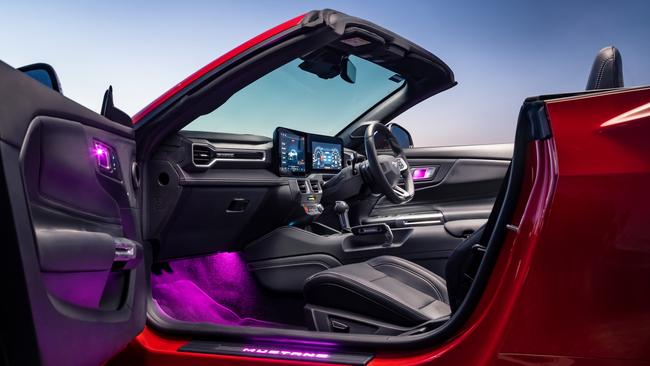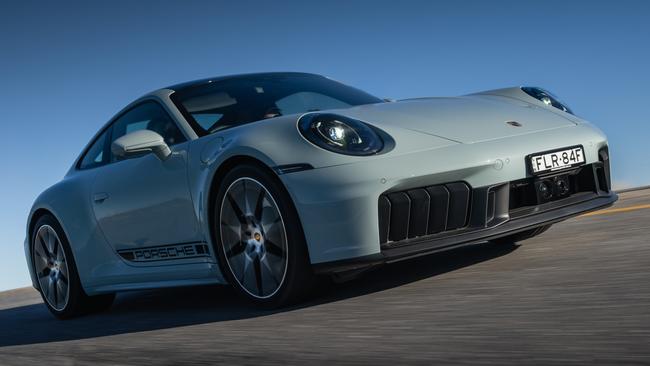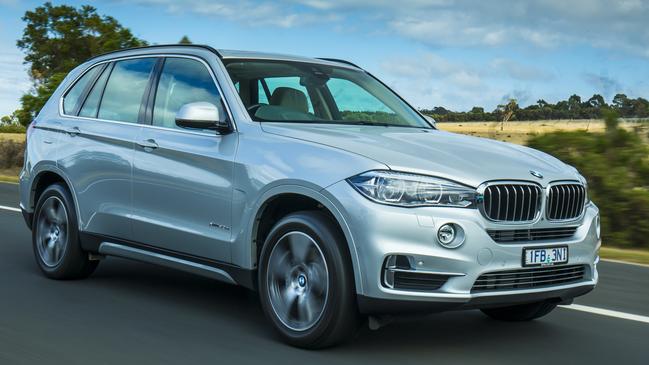Federal government offer to axe luxury car tax will devalue new and used cars from BMW to Kia
Axing the luxury car tax would reshape Australia’s metal market. And in case you think that’s not you, the definition of luxurious means even if you drive a mere Mazda, you’d be a tax target.

King Albo’s plan to axe the $5.2bn luxury car tax will reshape Australia’s metal market.
If the LCT is cut tomorrow the price of all used cars and many new cars will drop.
This week our own Ben Packham revealed the government “was prepared to dump the tax in return for better access for Australia’s agricultural exports to the Euro bloc’s 450 million consumers”.
What does this mean for you?
● If you own what those commies, John Howard and Pete Costello, called a “luxurious” car when they introduced the LCT on July 1, 2000, you’re in the sh.t. In case you’re one of those people who think depreciation doesn’t apply to them, the government says any new car over $76k is luxurious. That means if you drive a Mazda, Mini, Kia, Ford, Toyota, Nissan or Hyundai SUV you’re a tax target;
● If you bought a real luxurious car this arvo for $250k and KA (King Albo) killed the LCT next week, you just dropped $57k;
● If you own a luxurious car now, used car values will drop, as buyers compare used prices to more affordable new alternatives. Recent used models (one to three years old) would face the steepest declines;
● Bottom line: don’t buy a car until we know what’s going to happen with the LCT.
What does this mean for banks and finance companies?
● Nothing good;
● Financial institutions would need to recalibrate lending practices, revise residual forecasts, and potentially innovate their product offerings (eg, flexible leases) to adapt to a market where luxury cars depreciate faster but are more accessible to buyers;

● Collateral depreciation: Loans and leases are secured against the car’s value. If used car prices fall sharply, the collateral (the vehicle) backing these loans/leases could be worth less than the outstanding debt. This creates negative equity (owing more than the car is worth), increasing the risk of losses for lenders if borrowers default or renegotiate terms;
● Leasing companies estimate residual values (projected car value at lease end) upfront. A sudden drop in used prices means selling returned vehicles at a loss.
What does bad news for lenders mean for you?
● Tightened lending standards;
● Stricter approval criteria,
● Higher interest;
● Knocks on the door from the finance company asking for the keys.
What does no LCT mean for new car dealers?
● Confusion and panic;
● Lower margins unless they jack up prices (no bets on what they’ll do);
● Since many European manufacturers and distributors have been utterly bewildered by the LCT for 24 years and mostly not caught out, it will be a relief;
Why you shouldn’t buy a BMW even without LCT
As we say here, you buy a BMW when you want the driving experience of a god, the maintenance bills of a small jet and the resale value of a used fish.
Reader Shaun Burton, is looking for answers after his 2017 BMW X5 – with full-service history and just 77,000km – was declared a total loss following a botched EGR recall repair by Castle Hill BMW in late 2024. A loose component left in the engine caused catastrophic drive-train damage. BMW has admitted fault, but after nearly five months with no car, limited updates and no goodwill offer, Shaun has been offered just $46,000 by BMW Insurance – a figure he disputes, estimating the true value at closer to $50,000 given the car’s condition and extras.

EGR is exhaust gas recirculation. It’s an emissions control system found in most modern diesel (and some petrol) engines. EGR systems are notoriously temperamental. They clog up with soot, trigger warning lights and often lead to expensive repairs – particularly in European diesels like BMWs. That’s why they’re frequent flyers on the recall list.
In Shaun’s case, BMW did a recall repair on the EGR system but the dealer left something loose, which led to the engine wrecking itself. Classic.
You know the old “we’ve never seen this before” line. Well in 2018 in Trump Land the government recalled “certain 2013-18 BMW 328d and 328d xDrive, 2014-18 328d Sports Wagon and 328d xDrive Sports Wagon, 2014-16 535d and 535d xDrive, 2015 740Ld xDrive, 2015-17 X3 xDrive28d SAV and 2014-17 X5 xDrive35d SAV vehicles equipped with an exhaust gas recirculation module with an integrated cooler”.
Apart from not going too well, the engine could catch fire. Never a good look.
So, we asked will BMW review the payout valuation to reflect the car’s full condition and specifications? Will any offer of compensation or goodwill gesture be extended to Mr Burton? Will BMW review internal repair or recall procedures in light of this case?
BMW said: “The dealer’s insurance provider has proposed a payout of $46,000; however, no formal offer has yet been given to the customer. Castle Hill BMW is currently in discussion with Mr Burton regarding the matter. Mr Burton’s vehicle was towed (for free, how good is that?) to Castle Hill BMW on 17th December 2024. A brand-new BMW 340i loan vehicle was provided and remains in his possession.”
Five months and Shaun being down $63k is a good result?
The ACCC/Mazda case highlights the problem. In 2024 the ACCC won a Federal Court case against Mazda for “engaging in unconscionable conduct and making false or misleading representations to consumers who purchased faulty vehicles”.
Mazda’s own internal documentation (the “post repair checklist”) actually indicated that the issues with some vehicles were “major failures”, yet they still denied consumers their refund or replacement rights. Despite that, many owners have been and are being ignored by Mazda.
According to the ACCC’s interpretation of Australian Consumer Law in this legal action, Mazda and other carmakers should have offered full refunds or replacement vehicles at no cost to the affected consumers when their vehicles experienced these serious, recurring defects that constituted “major failures.”
More on this next week.
Why do road safety experts keep getting it so wrong?
On Wednesday a six-year-old boy was killed and three others – including two girls aged just two and eight – are in hospital after a horror crash between a dual cab utility and a tipper truck on a NSW south coast road.
Every year, about 1200 people are killed and more than 40,000 seriously injured on Australian roads. Road trauma is the leading cause of death for children under 15, and the second-biggest killer of Australians aged 15 to 24. Yet the experts keep calling them “accidents”.
Let’s be clear: These are not accidents.
They’re the predictable and preventable consequences of bad choices – mostly by drivers. Speeding is not an accident. Drink and drug driving is not an accident. Driving tired is not an accident. Distraction is not an accident. Not wearing a seatbelt is not an accident. No amount of expensive, so-called road safety campaigns are going to stop people being killed and injured for life.
The road toll keeps going up. Coppers and ambos who are confronted by the carnage are sick and tired of cleaning up for governments who don’t really care.
jc@jcp.com.au






To join the conversation, please log in. Don't have an account? Register
Join the conversation, you are commenting as Logout